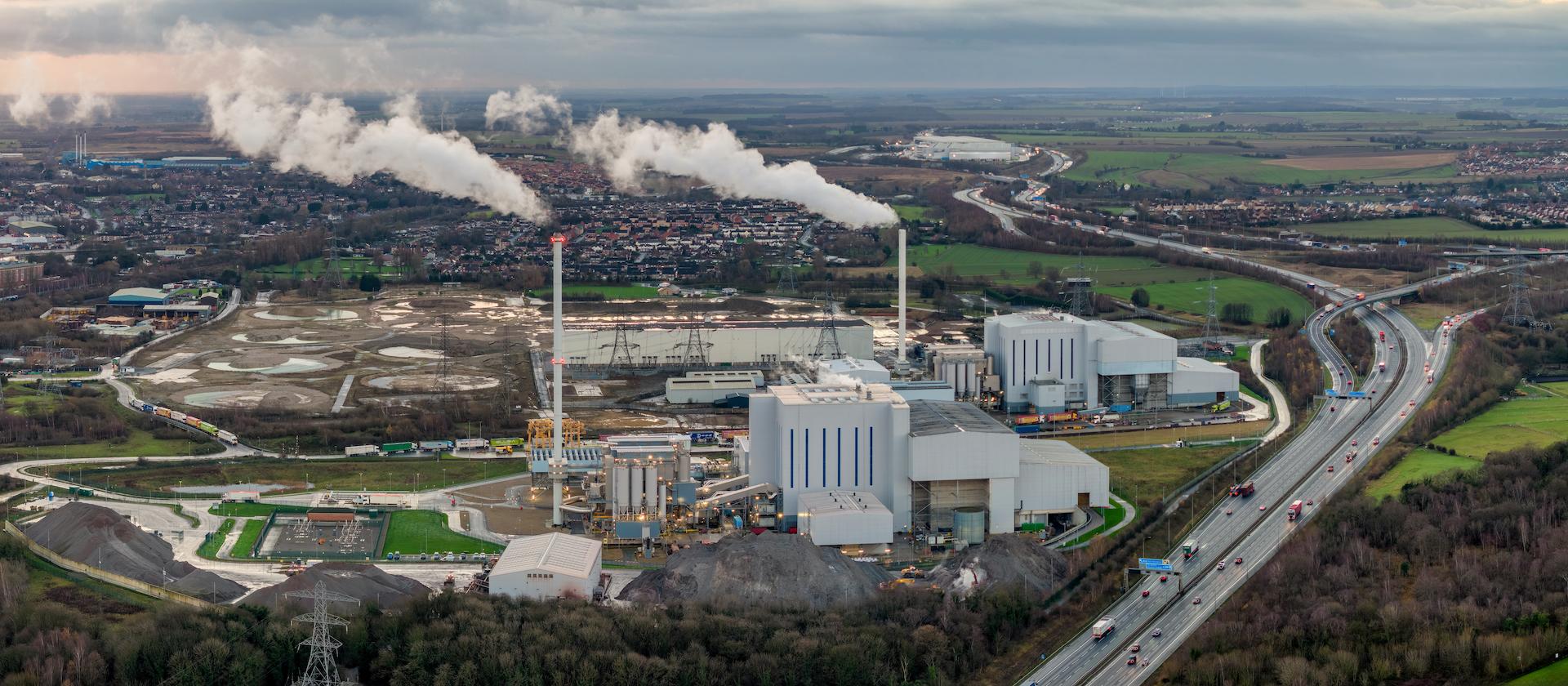Carbon budget allocates £58m for waste sector decarbonisation research
The government's Carbon Budget and Growth Delivery Plan identifies waste management and circular economy initiatives as central to meeting carbon reduction targets through 2037, with policies targeting landfill emissions reduction, waste incineration under emissions trading, and resource efficiency measures.
 The government has outlined its approach to reducing waste sector emissions as part of its Carbon Budget and Growth Delivery Plan, published this week, with waste and F-gas (fluorinated gases used in refrigeration and air conditioning) emissions accounting for 27 million tonnes of CO2 equivalent, representing six per cent of total UK net greenhouse gas emissions.
The government has outlined its approach to reducing waste sector emissions as part of its Carbon Budget and Growth Delivery Plan, published this week, with waste and F-gas (fluorinated gases used in refrigeration and air conditioning) emissions accounting for 27 million tonnes of CO2 equivalent, representing six per cent of total UK net greenhouse gas emissions.
The plan identifies waste management and circular economy initiatives as central to meeting the UK's carbon budgets through to 2037, with the Collection and Packaging Reforms identified as a key steps for reducing emissions from landfill.
The Environment Services Association estimates that implementing these reforms could generate £15 billion of infrastructure investment and create 40,000 new jobs across Britain in activities such as re-use, repair, and material reprocessing, according to projections cited in the plan.
Landfill emissions reduction
The government plans to pursue near elimination of biodegradable municipal waste to landfill from 2028, a policy that has been under development following consultation with the sectors. Landfill currently accounts for 72 per cent of waste sector emissions.
The plan indicates that Collection and Packaging Reforms, combined with additional measures under exploration, will contribute to meeting this aspiration. Defra published consultation outcomes in February 2025 identifying plans to expand restrictions on landfilling five key biodegradable materials including paper and card, food, garden waste, textiles and wood.
The government reports it will allocate at least £58 million across 2024-25 and 2025-26 on net zero research and development for the natural resources, waste and F-gases sectors.
Broader policy measures
The government states it will publish its Circular Economy Strategy to focus on reducing waste and reusing materials across key sectors, with the aim of addressing material efficiency and reducing the need for carbon-intensive virgin materials.
The plan includes measures to integrate circularity into planning and development processes through Circular Economy Statements and pre-deconstruction audits. Additional policies will encourage whole life carbon measurement and embed circular economy principles in public procurement.
Industrial Resource Efficiency measures outlined in the plan encompass strategies to avoid waste, improve process efficiencies, and support re-use, recycling and remanufacture, as well as adoption of low-carbon materials and feedstocks. Work is ongoing to develop cross-government interventions as part of Circular Economy Strategy development.
The UK Emissions Trading Scheme is set to be expanded to cover waste incineration in 2028 and the plan also identifies Energy from Waste facilities with carbon capture and storage as integral to the Government’s strategy to reduce greenhouse gases. This technology is projected to provide negative emissions alongside other carbon capture applications.
However, the plan acknowledges that CCS deployment faces implementation challenges related to infrastructure development, cost, and public acceptance. Only around 17 per cent of existing EfW plants are located near industrial clusters where CCS infrastructure is planned, with the remaining facilities requiring additional pipework construction or alternative transport methods.
Industry and policy dependencies
The plan acknowledges that waste policies depend upon implementation of reforms by businesses and local authorities and response from households.
Risk factors identified include the need for further research and innovation, dependencies on external stakeholders, legislative implementation timelines, and supply chain and sector capacity issues. Policy development work continues to increase delivery confidence for waste emissions savings beyond those expected from the Collection and Packaging Reforms.
Following the government's publication of the Carbon Budget and Growth Delivery Plan, John Scanlon, CEO of SUEZ UK and member of the Government's Net Zero Council, said: "I welcome the Government's climate plan and its reaffirmation of the commitment to the reforms that will deliver a thriving, resource efficient, UK circular economy.
“The waste and resources sector is a great example of the art of the possible when it comes to climate action, having successfully transitioned away from landfill, benefitting nature and reducing the sector's methane emissions by almost three quarters since 1990. At SUEZ we relish the opportunity to play our part in maintaining the UK's position as a climate leader, investing in services and infrastructure that will provide secondary resources and alternative fuels for other sectors, and creating skilled, green jobs around the UK.”




